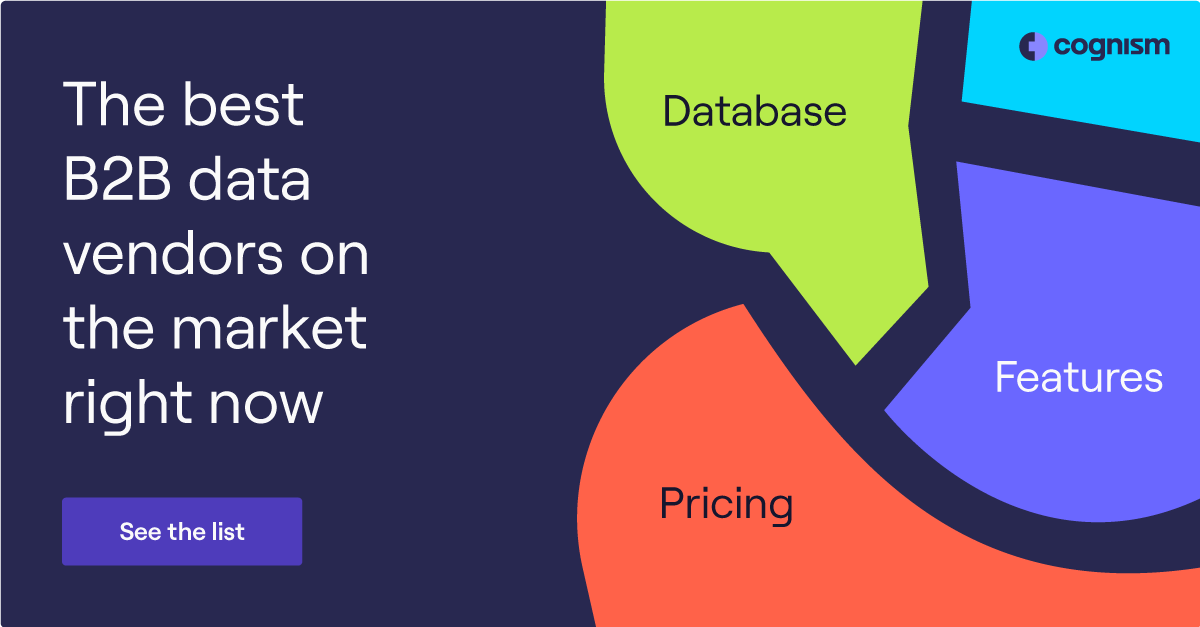Secret Attributes to Try To Find When Selecting a Database Supplier
Selecting a database company is an important choice that can dramatically influence your company's information and operations monitoring strategy. Among the important functions to think about are scalability choices, which guarantee that your system can adapt to growing demands.
Scalability Options
When choosing a database company, comprehending scalability choices is important to making sure that the selected option can fit future growth. Scalability refers to the capacity of a data source system to broaden its capability and performance in feedback to increased demand. There are 2 key sorts of scalability: straight and vertical.
Vertical scalability, or "scaling up," entails enhancing a solitary web server's resources, such as CPU, RAM, or storage. This strategy can be affordable and straightforward for smaller applications but might reach a limit where better upgrades are as well expensive or impractical.
Horizontal scalability, or "scaling out," entails adding extra servers to distribute the tons. This method enables greater flexibility and can suit considerable rises in data quantity and individual website traffic (database provider). It is especially advantageous for cloud-based database remedies that can dynamically assign sources based on need

Protection Procedures

When evaluating security actions, take into consideration the execution of security methods (database provider). Data-at-rest and data-in-transit file encryption are important to make sure that sensitive information continues to be secured, even in the event of a security breach. Furthermore, try to find carriers that offer solid verification systems, such as multi-factor authentication (MFA), to further enhance access control
Normal safety audits and compliance with sector requirements, such as GDPR or HIPAA, are indicative of a provider's dedication to data defense. Moreover, inquire concerning their occurrence reaction strategy; a robust strategy can reduce the impact of any type of potential protection event.
Efficiency Metrics
Assessing performance metrics is essential for companies to ensure that their selected data source company meets operational needs. Key efficiency metrics consist of response time, throughput, and scalability, which jointly determine the effectiveness of data source operations under varying lots.
Response time is vital, as it mirrors how rapidly the data source can process inquiries and return results. Organizations must look for metrics that suggest average response times during peak and off-peak hours. Throughput, frequently gauged in transactions per second (TPS), offers insight right into the database's capability to manage high quantities of requests without efficiency degradation.
Scalability assesses the data source's capacity to grow with the company's demands. A durable database provider should demonstrate horizontal and vertical scaling capabilities, permitting smooth changes as demands rise and fall. Additionally, understanding latency, specifically in dispersed systems, can assist companies assess the responsiveness of the database across different geographical places.
Consumer Support
Dependable customer assistance is a cornerstone of reliable data source administration, offering companies with the aid required to maximize and fix concerns efficiency. When picking a database service provider, evaluating the degree of client assistance they use is vital. A robust assistance system ought to include numerous networks of communication, such as phone, e-mail, and live chat, making certain that individuals can access help whenever they require it.
Additionally, receptive support groups that are offered 24/7 substantially improve the reliability of the data source service. Trigger response times and efficient resolution of issues can substantially decrease downtime and increase overall efficiency. It is additionally beneficial to take into consideration the accessibility of committed support employees, who can use customized support based upon an organization's particular demands.
%20%5B%2B%20FR%2C%20ES%20and%20DE%20variations%5D/B2B%20data%20providers/EN_B2B-data-providers-resource-card.png)
Prices Structure
When thinking about a database supplier, the pricing framework is a critical variable that can considerably influence an organization's spending plan and overall approach. A transparent and adaptable rates model is crucial for aligning the data source sets you back with company demands - database provider. Organizations ought to assess whether the prices is based on usage, per customer, or a flat rate, as each design can generate different monetary effects over time
It is necessary to analyze any type of extra prices associated with the company's solutions, such as data storage charges, deal prices, and assistance charges. Some companies might supply tiered pricing, allowing scalability as the organization expands, while others could enforce rigorous limits that could end up being expensive as information needs raise.
Moreover, organizations ought to think about the long-lasting value of the database option. While reduced preliminary i thought about this rates can be appealing, they may not represent future upgrades, maintenance charges, or combination expenses. Carrying out a complete cost-benefit evaluation will certainly assist determine one of the most appropriate prices structure that balances scalability, performance, and go to the website support, inevitably making sure that the chosen data source copyright straightens with the company's economic and functional objectives.
Verdict
In conclusion, choosing a data source company demands cautious factor to consider of various important features. Examining efficiency metrics enables the recognition of reliable data sources, and easily accessible consumer support improves the total user experience.
Choosing a data source provider is a vital choice that can considerably affect your company's data and operations monitoring strategy.When choosing a data source copyright, understanding scalability choices is vital to making certain that the chosen solution can fit future growth. When choosing a data source copyright, evaluating the level of consumer assistance they use is necessary.When considering a data source provider, the prices structure is an essential element that can significantly influence an organization's budget plan and overall method. Performing a detailed cost-benefit evaluation will assist determine the most ideal prices framework that balances efficiency, scalability, and assistance, eventually guaranteeing that the selected data source provider straightens Source with the company's monetary and operational purposes.